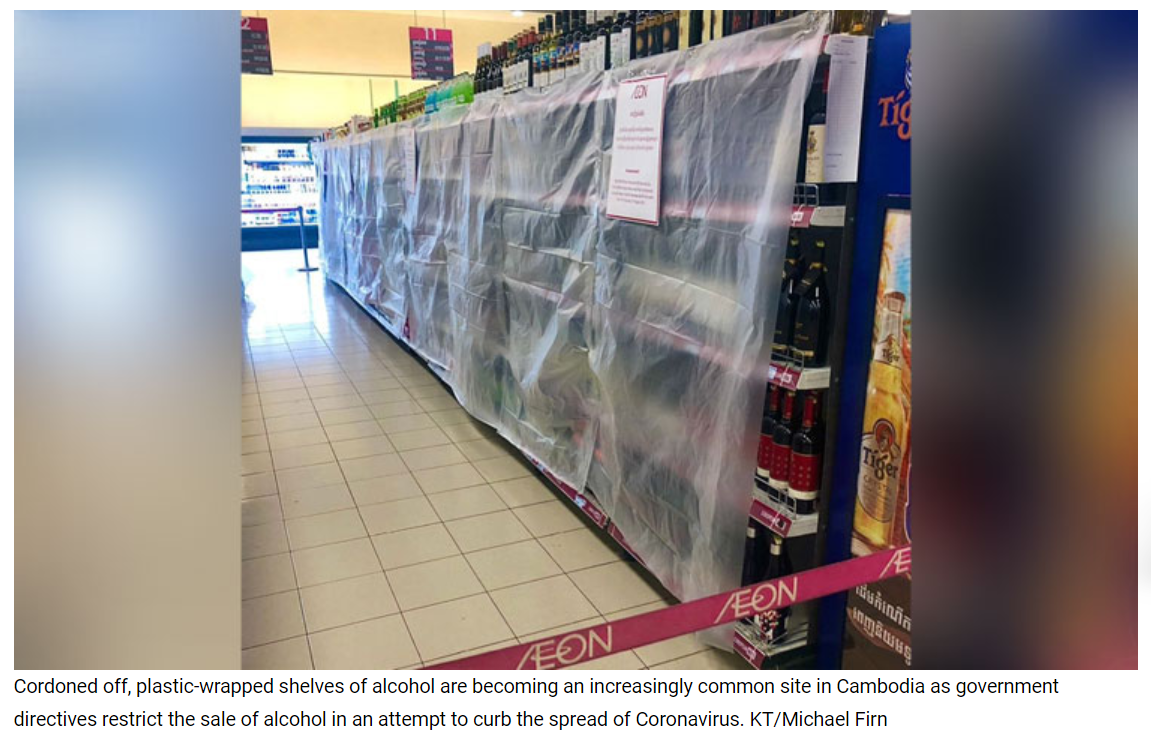Cambodia: Booze firms struggling with alcohol ban
Brewers and purveyors are struggling as the current ban on alcohol enters its eighth week.
Celebrated brewers Stone Head told Khmer Times that the uncertainty over the bans on alcohol across the country had forced it to lay off staff and temporarily suspend operations.
Proudly brewed in Koh Kong since 2015, the company said it stopped making beer in March. It is now in the process of moving its equipment to Phnom Penh and anticipates restarting operations once the alcohol ban is lifted.
“Due to the uncertainty over bans on alcohol in Phnom Penh and throughout the country, we have had no choice but to temporarily cease operations, which unfortunately led to staff layoffs,” a representative for the company said.
Michael Berg, chair of the American Chamber of Commerce’s (AmCham) newly formed Brewer’s Committee, said the alcohol ban will hit smaller producers before large producers are significantly affected.
The committee will use AmCham as a forum for collective advocacy addressing a range of issues affecting the industry, according to Berg.
“It is important to highlight that the government’s pandemic response has been stellar and Cambodia is outpacing most of the region and leading globally because of its preventative measures and exemplary vaccination record,” he stressed.
“However, the ban on alcohol is impacting brewers significantly and many of the smaller companies are wondering whether they will be able to survive the ongoing ban. The larger companies, who are among the largest taxpayers in the country, will be impacted certainly, but they will likely be able to subsist through this period,” Berg continued.
The Cambodia Restaurant Association previously said the industry had seen a 50 percent drop last year over 2019 and restaurants had seen a compounded 60 percent decline so far this year.
“Many restaurants are suffering and being forced to lay off employees because alcohol sales can easily make up the majority of a restaurant’s net profits,” added Berg.
Restaurant owners said alcohol sales accounted for between 20 to 40 percent of their overall profit margins.
“An extension on the liquor ban will take a toll on business,” said Dashkin’s owner, who uses the single name Pannirselvalam, noting that the second half of August had seen an uptick in business after curfews and the ban on dining were lifted.
South Africa, which also instituted a ban on alcohol to curb the spread of Coronavirus, had to dump more than 500,000 bottles and cans of beer in a rural farm after they were found to be expired.
Darren Gall, a wine expert and ambassador for labels under various distributors, said products with low alcohol content, like beer, face being left on store shelves beyond their expiry dates.
Gall also said suppliers were facing cash-flow pressures during the ban because of “slow churn rates” that strained relationships between suppliers and distributors.
“At the beginning of each year, we make certain commitments to suppliers and seek certain commitments from our closest customers in terms of securing allocations. These are thrown into some jeopardy with the ban, with volumes backing up the supply chain. I see some smaller, undercapitalised businesses at the import and distribution level possibly not surviving this,” he said.
“The strain on importers and distributors are enormous. They are sitting on stockpiles that have payment due and no revenue. The same for the retail B2C [business-to-consumer] sector. Many small, often hand-to-mouth companies will be forced to roll the dice and serve alcohol, running the risk of reprisals as they feel they have no choice – it’s that or close down permanently,” Gall continued.
“At the end of the day it’s not an alcohol problem. It’s a people-gathering problem that needs to be curtailed.”
Source: https://www.khmertimeskh.com/50926882/booze-firms-struggling-with-alcohol-ban/


 Thailand
Thailand




